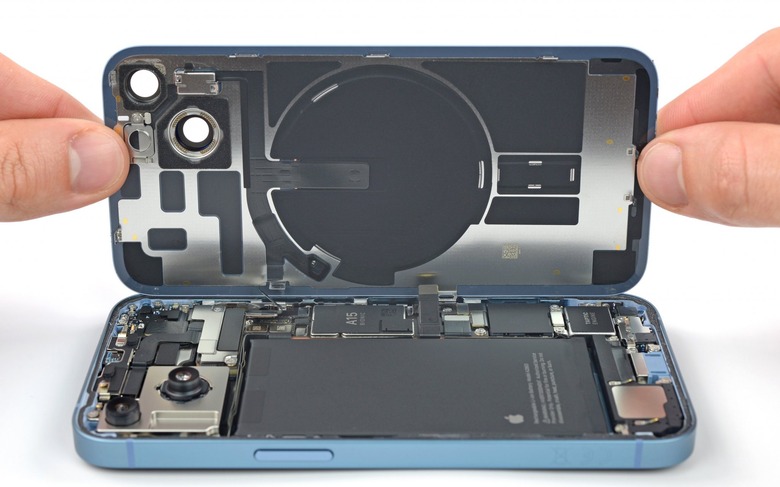French Environmentalists File Complaint Against Apple For Being 'Wasteful'
The same French environmentalist group in 2020 won a 25 million euros lawsuit against Apple due to the company's failure to inform iPhone users that iOS updates could slow down their phones is now making a new complaint.
This time, L'association Halte à l'Obsolescence Programmée (HOP) says Apple is making it harder for customers to repair their iPhones as it's "serialization" of every part of the smartphones as well as failing to communicate to them about programmed obsolescence.
First spotted by Reuters, the group said in a statement that this complaint filed with the Public Prosecutor targets an "increasingly widespread practice by the manufacturer: serialization." With that, Apple associates the serial numbers of iPhone components via its chip and software, so users can't repair their phones without Apple's authorization.
HOP says that even if you have an actual iPhone screen or battery replacement, if Apple doesn't authorize the change, it will say that the device is malfunctioning or the part replaced isn't original. The group gives an example by saying that an iPhone XR on iOS 16 with a screen repaired will show that the touchscreen was made unusable by Apple, while it doesn't have any problem on iOS 15.
The group states that "these practices undermine not only the Right to Repair but also the development of refurbished smartphones." The complaint filed by HOP has almost 60 pages showing what Apple could be prosecuted for. BGR highlights two:
- Misleading commercial practices (in particular through the lack of consumer information);
- Offenses assimilated to planned obsolescence – in which Apple agreed to pay 25 million euros to the group due to this matter in 2020.
For the HOP association, the malfunctions observed repeatedly without information and without a solution provided to the consumer or the repairer ar not simple 'bugs'. Apple aims to disadvantage independent repair or reconditioning, in favor of the sale of new smartphones or captive repair at prices that are often dissuasive for the consumer.
HOP also tackles Apple's efforts to become carbon neutral by 2030, saying that "nearly four million iPhones are sold yearly in France. However, nearly 80% of the environmental footprint of a smartphone is generated during its manufacture."
For Laëtitia Vasseur, co-founder and general delegate of HOP, "at a time when Apple prides itself on environmental initiatives, our role is to reveal the scandalous waste that it actually organizes". Samuel Sauvage, co-founder of the association, adds: "If Apple wishes to obstruct independent repair and the development of reconditioning, justice must stand in the way of these anachronistic, irresponsible and illegal practices."
Early this year, the company launched an initiative that let Americans repair some of Apple products, with Apple offering the tools and parts to them at a lower price. This initiative has also just launched in France and other European countries.
